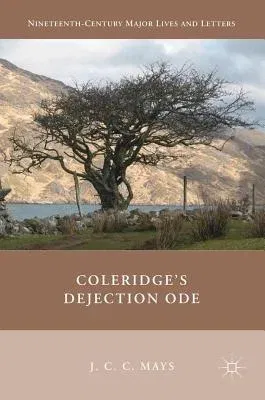J C C Mays
(Author)Coleridge's Dejection Ode (2019)Hardcover - 2019, 5 February 2019

Qty
1
Turbo
Ships in 2 - 3 days
In Stock
Free Delivery
Cash on Delivery
15 Days
Free Returns
Secure Checkout

Part of Series
Nineteenth-Century Major Lives and Letters
Print Length
281 pages
Language
English
Publisher
Palgrave MacMillan
Date Published
5 Feb 2019
ISBN-10
3030041301
ISBN-13
9783030041304
Description
Product Details
Author:
Book Edition:
2019
Book Format:
Hardcover
Country of Origin:
NL
Date Published:
5 February 2019
Dimensions:
21.01 x
14.81 x
1.75 cm
ISBN-10:
3030041301
ISBN-13:
9783030041304
Language:
English
Location:
Cham
Pages:
281
Publisher:
Weight:
508.02 gm